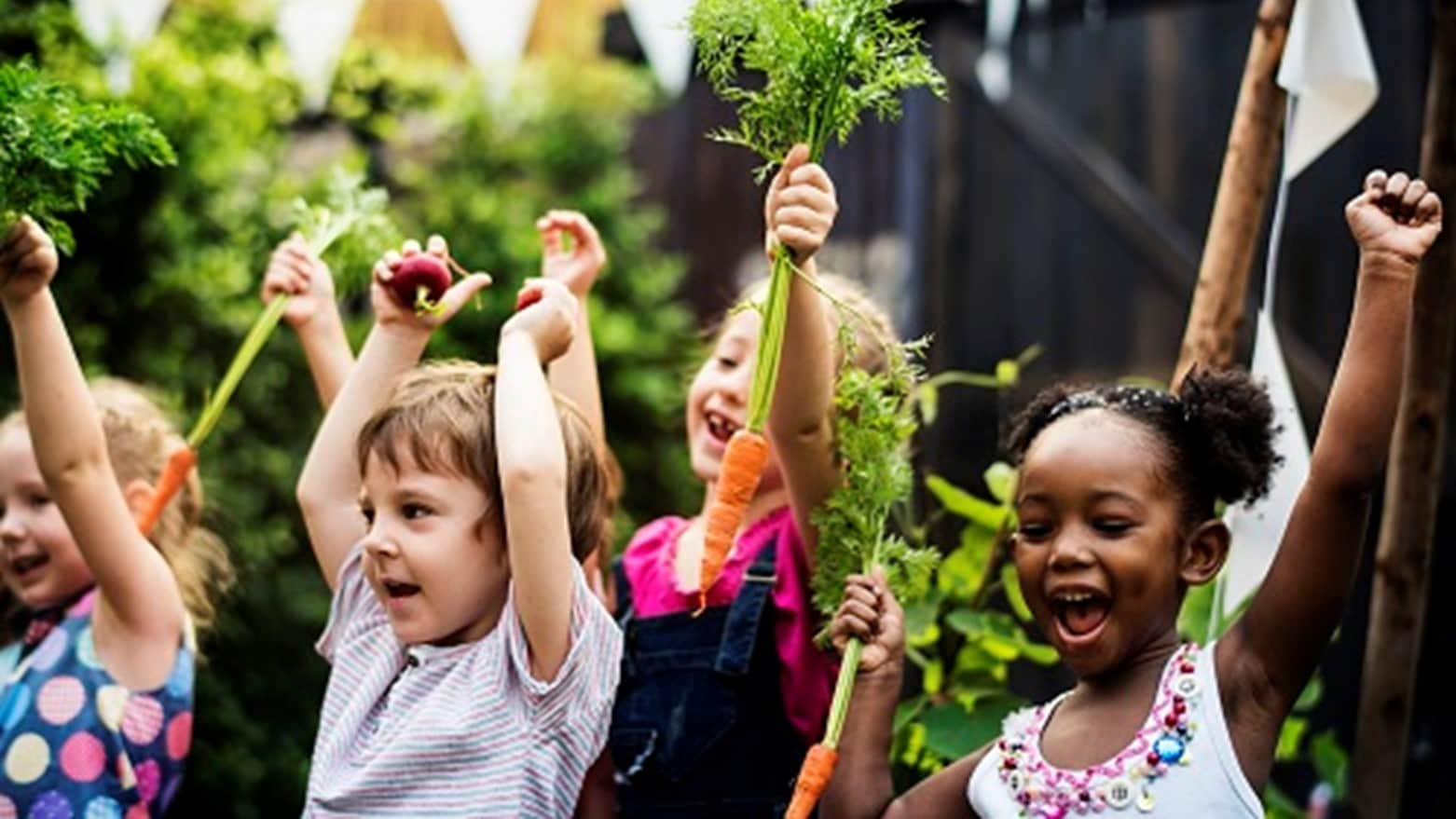What to know
Farm to Early Care and Education (ECE) programs increase access to fresh, healthy food. These programs can also help children learn more about food and how it is grown. Learn more about the benefits of Farm to ECE programs.

What is Farm to ECE?
Farm to ECE is a set of strategies and activities for the ECE setting. According to the National Farm to School Network, Farm to ECE provides children with:
- Access to healthy, regionally produced foods through local purchasing.
- Opportunities for hands-on gardening experience.
- Nutrition, food, and agricultural education.
Benefits of Farm to ECE
Children benefit from Farm to ECE activities, such as gardening, farm visits, and taste-testing fresh food from local farms. These types of activities teach children about healthy food and engage all five senses. Additionally, Farm to ECE can increase children's fruit and vegetable intake and willingness to try new fruits and vegetables. This can improve children's diet and wellness.
Farm to ECE activities can help ECE providers serve vegetables and whole fruits to children. Serving these foods aligns with some of the high-impact obesity prevention standards and with the Child and Adult Care Food Program. In addition, Farm to ECE activities can provide children with opportunities to play outside. Increasing physical activity is also an obesity prevention best practice.
Farmers benefit from Farm to ECE by creating more diversified income streams for regional growers.
Communities benefit from Farm to ECE by providing opportunities to build family and community engagement through gardening, gathering food, and visiting farms or food producers' events.
